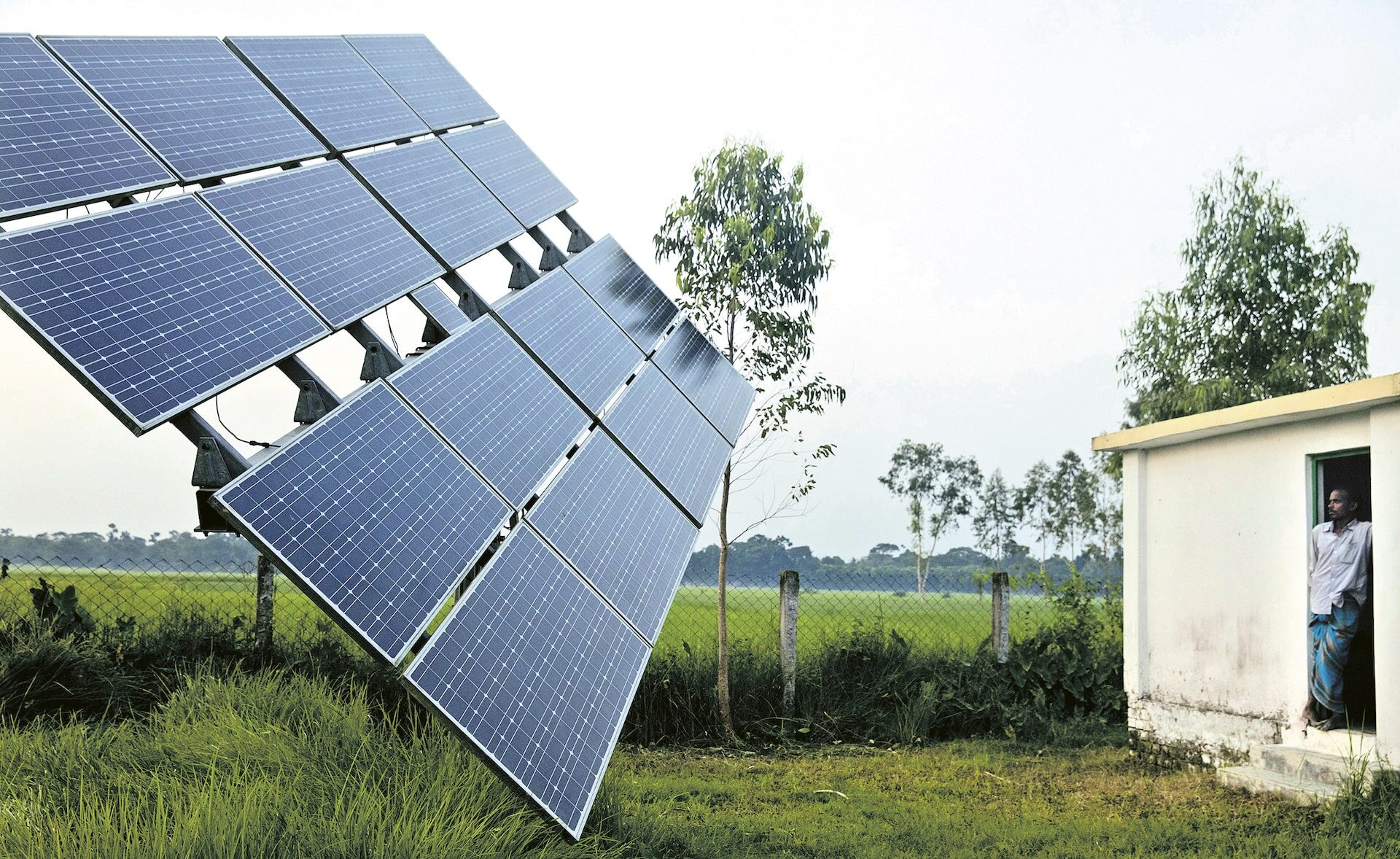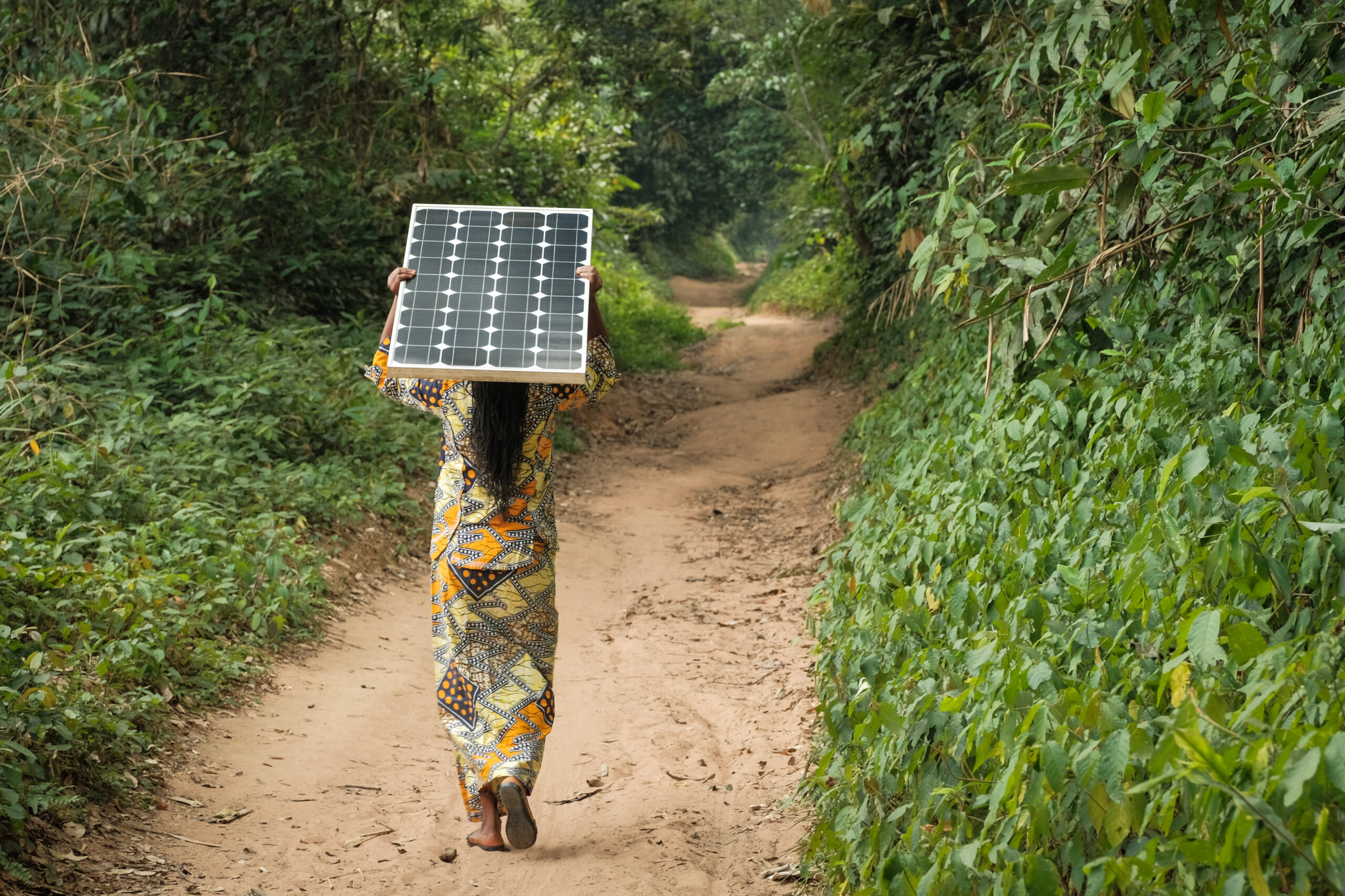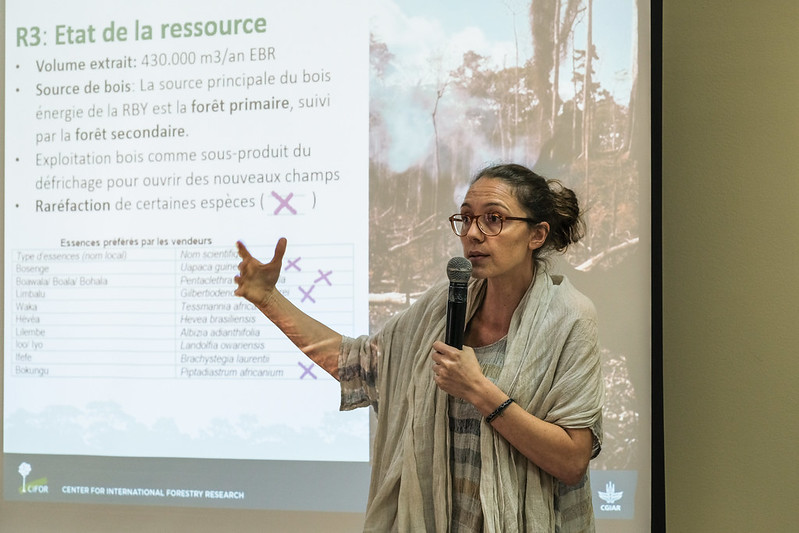'Manik, a solar pump operator for Nusra' by World Bank Photo Collection via Flickr (CC BY-NC-ND 2.0) https://flic.kr/p/N1ZtUY

Understanding clean energy and development synergy is key to SDGs
3 November 2023
Universal access to clean and affordable energy by 2030 is pivotal to sustainable development goals (SDGs), both in its own right and as a critical means of achieving other SDGs targets including decent work and economic development. With the first Global Stocktake at COP28 ongoing, reducing carbon emissions remains vital to mitigate the climate crisis.
Recent reports, however, show that progress in meeting SDGs targets is in peril or even going into reverse. Likewise, numerous national plans towards net-zero transition fall short of requirements. Many of these appear to be faltering for multiple reasons, including spiralling energy prices precipitated by global conflicts and the Covid-19 pandemic. Amidst all this is the fact that the synergy between clean energy and sustainable development is less understood to guide policy and action.
The links between clean energy and sustainable development need better understanding
Despite a recent dip, global clean energy production shows unprecedented growth, and generation cost is falling, notably for solar photovoltaic and wind plants. But contribution to clean energy capacity additions, and the benefits thereof, bypass significant regions, countries, and communities most in need. UN sources show that, worldwide, 675 million people – many of whom are in sub-Saharan Africa, a region rich in renewable resources – have little or no access to electricity. These people contribute little to the climate crisis but bear the brunt of it. The UN underlines that, if the current trend is to continue, by 2030, there will be many more millions of people without access to electricity and who will rely on unstainable resources such as biomass energy and carbon fuels. Finding mechanisms for increasing investment in clean energy generation and access remain central to clean energy generation and transition.
Clean energy and sustainable development are intertwined; delivering improved food and nutrition, health and education outcomes, industrialisation, and local economic growth all. require energy. However, there is a growing concern that there is little coherent – and authoritative – knowledge on the synergy between clean energy and sustainable development. Technological solutions (such as solar photovoltaic or energy storage systems) may be increasingly available but little is known as to who gains from these technologies, nor when and where institutions and energy systems (centralised grid or distributed systems) serve those most in need. Women, young entrepreneurs, and informal businesses, as well as micro, small, and medium size enterprises (MSMEs) tend to be creators of most jobs in low- and middle-income countries (LMICs) but are also the most economically vulnerable. Research into the clean energy and sustainable development nexus is a long-overdue and critical topic.
New research on clean energy for development
Appreciating this knowledge gap, the International Development Research Centre (IDRC) commissioned a ‘Clean Energy for Development’ programme. It initially supported five projects, with more to follow, which collectively seek to understand how clean energy transition contributes to sustainable development, energy equity and security, decent job creation and economic development.
The Institute of Development Studies (IDS) is providing cohort-level learning and engagement support to the programme’s research teams to help them synthesise knowledge for global and regional audiences. We will promote the latest outputs, learning and recommendation from their emerging body of evidence throughout the programme.
The initial five projects are in 15 LMICs, across four continental and sub-continental regions. They draw from a range of perspectives, including political economy analysis and energy transition, to generate significant global knowledge about the synergy between clean energy and sustainable development. They explore a wide range of questions, including:
- who gains, and who loses, from the clean energy transition?
- when, where and how do institutions and different energy systems generate affordable and accessible energy to marginal communities?
The goal is to identify the root causes of barriers to and opportunities for clean energy transition and sustainable development. The projects involve those most impacted by the research, particularly women and youth, to support their voices and agency in policy processes.
The Clean Energy for Development programme encourages collaborative partnerships within and between the project stakeholders foster the pathways to impact. Evidence and learning are crucial to clean energy transition in an equitable and just way.
blog
Powering change: Women, youth, and the clean energy revolution
Thursday 13 March 2025
Women and youth face systemic barriers to accessing clean energy opportunities. This panel explores evidence-based policies and business strategies from Africa and MENA to ensure a gender-inclusive energy transition. Experts will discuss skills development, finance, and social policies needed to empower women in the clean energy sector. As the world gradually moves towards clean energy, […]
Woman carrying a solar pannel near Yangambi, DRC. Axel Fassio/CIFOR via Flickr. CC BY-NC-ND 2.0 https://flic.kr/p/286BAUy

Powering Change: The Critical Role of Women and Youth in Sustainable Energy Transformation
9 April 2025
How do we build economic systems that recognise and work within the biophysical limits of our finite planet while simultaneously reducing poverty and inequality? This has become a defining question of our time, and the global transition to clean energy is increasingly considered an important vehicle via which we might address this ‘trilemma.’ Concerns about […]
Building Evidence on the Role of Women in the Clean Energy Transition: ANDE & IDRC Announce Support for Six Research Teams
15 April 2025
This article was reposted from andeglobal.org. Improving Outcomes for Women-led Clean Energy Enterprises Through Applied Research is one of 12 research projects which make up The Clean Energy for Development: A Call to Action (CEDCA) initiative. Despite making up 39 percent of the global workforce, female participation in the energy sector remains dismal, with […]



